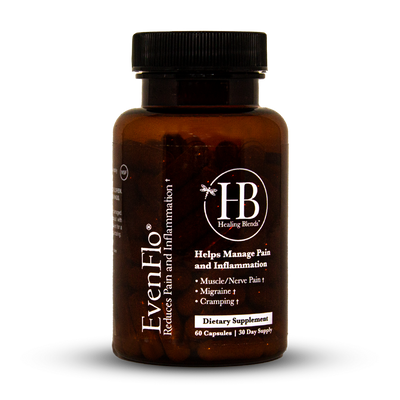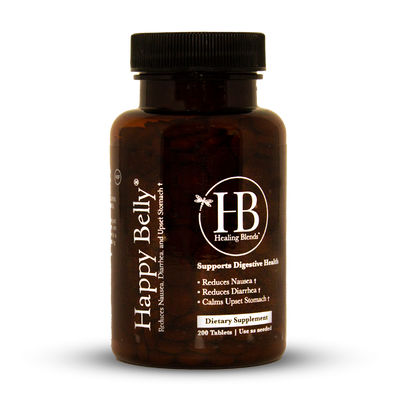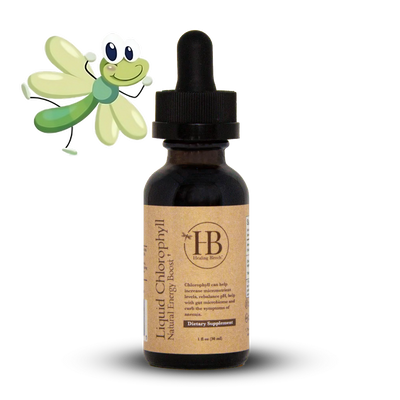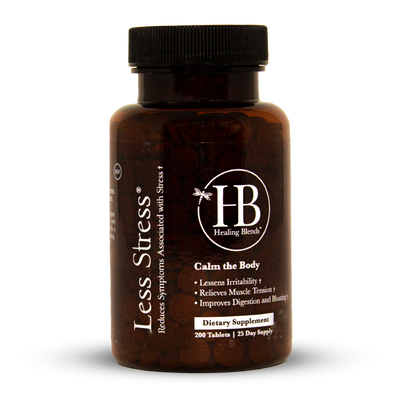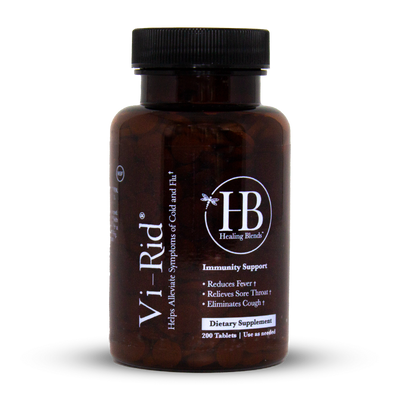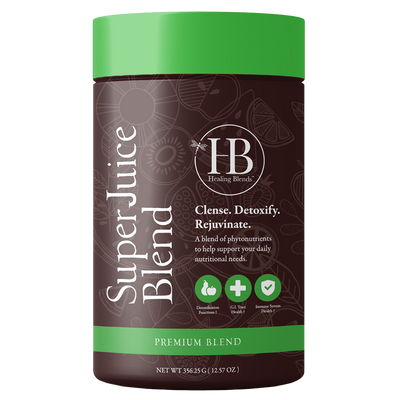Herbal Supplements for Memory
Smart pills, cognitive enhancers, memory supplements or in the medical language, nootropics, are drugs that claim to improve brainpower. They have gained popularity because of the highly competitive world we live in. People who are more creative, intelligent, focused and have better memory enjoy more opportunities and receive higher social recognition than their contemporaries. They land on better jobs, become more popular and seen as valuable assets.
College students, corporate executives, and even older individuals benefit most from these herbal supplements for memory. Nootropics boost brain functions so that your mind works more efficiently. They are taken to improve information assimilation while reviewing and during exams, to enhance confidence and neural organization in time for a company presentation or to delay the signs of aging and prevent debilitating diseases like Alzheimer’s.
For someone who has not yet tried it and is skeptical about nootropics, there are surely a lot of questions going on your mind right now. Let’s answer each of them and see if the supplement is worth a try.
What Are Nootropics?
"Nootropics" comes from a Greek word meaning mind-bending. Psychologist and chemist Corneliu Giurgea introduced the term in 1972 when he produced Piracetam, a cognitive enhancer. This was the first synthetically produced substance shown to activate the brain and increase alertness. But even before the achievement of Giurgea, nootropics have been used for thousands of years. Its formal recognition happened in the 1950s as scientists started experimenting with mind-altering substances. Early efforts were futile though because the drugs have been more associated with bad effects than good ones.
Nootropics are substances, drugs or pills that are so-called brain boosters. Since the brain is the most powerful organ of the body, it is only proper that it is nourished with the right nutrients. Nootropics are the “next level” pills that offer limitless cognitive potential. They promise to promote mental sharpness by feeding the brain with the right vitamins. As mentioned in a 2014 VICE article, these drugs can unlock man’s full potential.
Today, nootropics are marketed as food supplements to enhance mental functions. They are considered as the most promising dietary nutrients of the century because they help users think and focus better and reduce the risk of degenerative diseases.
How Do Nootropics Work?
The exact mechanism of how nootropics work is still unknown. Research from Current Pharmaceutical Design says that the task is difficult because of the complex brain function. The expensive and lengthy clinical trials and the poor predictivity of test animals all contribute to the lack of solid proofs.
But despite insufficient research, there are possible theories that experts suggest how these brain supplements work. One study shows that it alters the levels of neurotransmitters, the chemical messengers in the brain. They balance the chemicals that feed the central nervous system so that neurons can communicate critical information faster and more efficiently. There is also evidence that these supplements promote better blood flow in the brain and help protect the neurons from oxidative stress.
Benefits of Taking Nootropics
Nootropics or the natural food supplements for the brain are definitely the best solutions for your mental health issues. There are several clinical studies that account for their ability to enhance learning acquisition, improve mood and vitality, and offer defense against stressors and toxic environment. Recently, more studies are being taken for the potential use of nootropics in treating mental disorders like ADHD and Alzheimer’s disease. Should these researches progress, this will definitely open a new world of possibilities in treating different disorders.
Components of Herbal Supplements for Memory
The different herbal supplements for memory vary in terms of their ingredients. Some may only contain one potent ingredient while others will incorporate more in their products. Generally, they will contain at least one of the following:
1. Vitamin B Complex
The B group of vitamins have long been associated with their role in brain functions. They aid in nerve performance, promote food availability for the brain, and serve as precursors for the synthesis of neurotransmitters. Specific B vitamin-like niacinamide is used to treat anxiety and schizophrenia while folic acid is well known for its ability to maintain cognitive functions. Without these two essential vitamins, dementia may occur. Food sources of B complex include whole grains, rice, wheat germ, and organ meats.
2. Ginkgo Biloba
Ginkgo Biloba improves brain performance by increasing blood flow and oxygen to the brain and other tissues. It also enhances the level of neurotransmitters for better communication. When the brain is well-nourished, it expects more efficient processing of information. Extracts of the plant contain active flavonoids known to have a beneficial effect on mental functions. They are also considered as powerful antioxidants and prevent premature death of cells.
3. Fish Oil and Omega-3 Fatty Acids
Omega-3 fatty acids like DHA and alpha-linolenic acid have a strong influence on brain functions. Studies have shown that a diet rich in fish oil increases the learning abilities of an individual. This is because these important fatty acids improve communication between neurons. They enhance the body’s ability to react to serotonin, which is a happy hormone. People with a sufficient amount of omega-3 fatty acids are at a lower risk of depression. Among pregnant women, increasing linoleic acid in the diet has been associated with having a more intelligent baby. Fish oil also reduces the extent of brain damage during a cerebral stroke and keeps the brain in a healthy state. Omega-3 fatty acids are found in salmon, sardines, walnuts, flaxseeds and chia seeds.
4. Medicinal Mushroom
Medicinal mushrooms have a long history in Chinese medicine. Species like cordyceps, reishi, chaga, and turkey tail have been associated with their cognitive function abilities. In the Journal of Medicinal Plant Studies, cordyceps has been used as antioxidant, neuroprotective and anticancer. The herb has also been known to possess aphrodisiac and hepatoprotective properties.
5. Adaptogen Herbs
Adaptogen herbs are plant sources known to improve strength and stamina and relieve stress. Good examples include ginseng, ashwagandha, Rhodiola Rosea and astragalus root. Since 1947, adaptogen has been associated with its ability to resist harmful factors in the environment.
Several studies point out the numerous therapeutic effects of adaptogen herbs. Stress models used to offer evidence of the mode of action of adaptogens include environmental harm like radiation, bacterial infection and emotional stress. All these external stimuli are harsh to brain function. Without aid from adaptogens, the cells become very susceptible to deterioration.
6. Bacopa Monnieri
Bacopa monnieri has been used for centuries for its memory-enhancing abilities. Bacoside, the active ingredient well-studied, confirms its nootropic action. In an article in Science Direct, clinical studies show that this traditional Ayurvedic medicine helps manage a wide range of nervous system problems like memory loss, anxiety and Alzheimer’s disease. It acts by regulating the dopamine and serotonin levels to improve the overall brain function. Aside from its nootropic value, Bacopa is also used to treat stomach problems, and skin disorders. It also has an anti-epileptic and analgesic effect. In a study by the Export-Import Bank of India, the plant ranked second as the most important medicinal plant with greater potential for further development. Traditional claims say that it aids in learning and memory and improves focus and attention span of learners.
Other notable ingredients of herbal supplements for memory include creatine, acetyl -L- carnitine, taurine, L-tyrosine, L-theanine, phenylalanine, theobromine, choline, cat’s claw extract, and artichoke leaf extract.
Are Nootropics Safe?
Supplemental nootropics or smart drugs are generally safe to use. They come from natural food sources and plant-based origins. DHA comes from fish oil and ginseng and ginkgo biloba have long been used to treat different diseases.
Unlike other mood and brain-altering drugs, smart drugs like the herbal supplements for memory are non-toxic and non-addictive. You can buy them even without a prescription. There are also no reported adverse effects of natural nootropics. But to be 100% sure, you should always consult your doctor before taking any food supplement especially if you have an existing medical condition. Drug interactions may occur and this is definitely the last thing that you want to experience.
What's the Best Herbal Supplement for Memory?
The best herbal supplement for memory depends on the reason why you use the drug and your current medical condition. Because of the unique neurochemistry and genetics, each person reacts differently to the supplements.
When choosing the best nootropic, you should also consider the extensive studies conducted to prove their benefits. Even when manufacturers say they have the best product at hand, your basis should be the unbiased studies that offer soundproofs of their effectiveness.
To maximize the benefits of nootropics, experts recommend that you do a cycling strategy – that is taking the supplements at a predetermined time and taking a break for a few days before proceeding again. The break prevents the occurrence of dependence.
It is also best to purchase from reputable sellers to avoid fake products. Always look for natural products or plant-based sources. They are safer than synthetic products and do not lead to withdrawal symptoms.
Synthetic Nootropics
Aside from the herbal supplements that contain active ingredients that help enhance memory, there are also synthetically produced versions of nootropics. Unlike herbal supplements, they are powerful stimulants that may be addictive. There are also reported side effects of these drugs and because of that, you simply cannot purchase them without a doctor’s prescription.
1. Piracetam
Piracetam is the original nootropic discovered in the 1960s. It is effective for older individuals experiencing memory loss and is available upon prescription only. Among healthy individuals, the benefits of the drug are limited. It should be used with caution since there are noted side effects like drowsiness, insomnia, anxiety, and agitation. The drug is also known to cause adverse reactions among people taking blood thinners.
2. Nicotine
In previous studies involving laboratory animals, nicotine was shown to possess memory-enhancing effects. Animals with induced amnesia were subjected to doses of nicotine and results were significantly positive. Researchers concluded the ability of the substance to potentiate the acquisition of learning. But the same as the nicotine in cigarettes, the drug can be addictive.
3. Modafinil
Modafinil is a common treatment for patients with narcolepsy. It is also called as the “wakefulness-promoting” pill. It works by providing stimulating activities to the nerves. The psychostimulant with cognitive and anti-depressant effect improves focus and clarity. The drug is often prescribed for sleeping disorders and considered as alternatives to caffeine. However, be extra careful when taking the drug since prolonged use may lead to unusual thoughts and hallucinations.
4. Amphetamine and Dextroamphetamine
One popular example of nootropic under this category is the Adderall. The drug is originally intended for patients suffering from narcolepsy and ADHD. When taken by healthy individuals, it can lead to increased alertness and energy. Adderall has been shown to help students improve their performance in school. The drug creates rewarding feelings of euphoria. However, long-term use can be addictive, may suppress the appetite and lead to increased tolerance. Withdrawal from Adderall leads to symptoms like irritability, anxiousness, insomnia, and cardiac problems.
5. Phenibut
Phenibut is a neuropsychotropic drug used in clinical practice. It is known to have cognition-enhancing effects by stimulating receptors in the brain. In Russia, the drug is widely used to improve sleep, relieve tension, and treat depression including post-traumatic stress. It gained popularity as it was included in the standard medical kit supply of cosmonauts during their space flights. In the US, the drug is marketed as a nutritional supplement with mind boosting abilities. Buyers easily gain access to the drug because of online sellers. However, experts warn users that drug tolerance can develop within 1-2 weeks of use.
6. Adrafinil
Adrafinil has increasing popularity as an intelligence boosting wonder drug. It improves attention, mood, and wakefulness. They are used by individuals who seek better mental capabilities from pharmaceutical solutions. Because its metabolites can stay longer in the body, experienced users say that a dose of three times per week is sufficient to maintain the beneficial effects. However, the drug is banned by the World Anti-Doping Agency. So, if you are planning to compete for sports that require drug testing, you better stay away from it.
Herbal Supplements for Memory vs Synthetic Nootropics
There is always a debate as to which one is more effective. Synthetic drugs offer more noticeable and immediate results but there is so much question as to their long-term effect. Synthetic nootropics are not naturally found in nature or produced in the body. Instead, they are chemically manufactured in laboratories. Depending on your country, these drugs are often prescribed by doctors. Many of them are regulated because several clinical studies have shown that they are addictive in nature. They are also associated with serious side effects including the development of withdrawal symptoms, anxiety and insomnia.
The natural nootropics come from plant-based sources. Their goal is to improve brain performance in a gradual and safe manner among healthy individuals. The beneficial effect can be observed only after one to two months of use. The results may take a longer time to observe but at least they do not lead to adverse side effects as that of the synthetic drugs. In fact, prolonged use of supplements can actually be more beneficial for the body.
Bottomline
Nootropics come in different forms. They can be the natural sources like the herbal supplements for memory or as synthetic drugs that are available only with a doctor’s prescription. Both are effective brain boosters that help improve memory, mental functions, and mental clarity. But if you want to stay on the safer side, you should go for the food supplements. They are safe, non-toxic and non-addictive.
The brain is the most powerful organ that influences all aspects of your life. Better mental abilities give you an edge over others. As students, cognitive enhancers improve your chances of getting good grades. For healthy working individuals, greater focus and mental clarity create more opportunities for career growth and lastly, for older adults, sharpness and better memory allow you to defy the signs of aging.
Investing in the right herbal supplements for memory is the best way to conquer your world within and the more competitive world outside. Consider the natural nootropic as your starting point to your “life boost”. By nourishing your brain with the right nutrients, you can unleash your maximum potential. Open your mind to limitless possibilities and enjoy life to the fullest.
References:
- Suliman, Noor Azuin et al. “Establishing Natural Nootropics: Recent Molecular Enhancement Influenced by Natural Nootropic.” Evidence-based complementary and alternative medicine : eCAM vol. 2016 (2016): 4391375. doi:10.1155/2016/4391375
- Joshi, Rakesh K. “Phytochemical and Medicinal Aspect of Cordyceps Sinensis (Berk.): A Review .” Journal of Medicinal Plants Studies, 20 Dec. 2015.
- Panossian, A, et al. “Plant Adaptogens III. Earlier and More Recent Aspects and Concepts on Their Mode of Action.” Phytomedicine, vol. 6, no. 4, 1999, pp. 287–300.
- Russo, A, and F Borrelli. “Bacopa Monniera, a Reputed Nootropic Plant: an Overview.” Phytomedicine, vol. 12, no. 4, 2005, pp. 305–317.
- Rajani M. (2008) Bacopa monnieri, a Nootropic Drug. In: Ramawat K., Merillon J. (eds) Bioactive Molecules and Medicinal Plants. Springer, Berlin, Heidelberg
- Pranav, Joshi C. “A REVIEW ON NATURAL MEMORY ENHANCERS (NOOTROPICS) .” Unique Journal of Engineering and Advanced Sciences, 3 Jan. 2013, pp. 8–18.
- Hiramatsu, M., Satoh, H., Kameyama, T. et al. Nootropic effect of nicotine on carbon monoxide (CO)-induced delayed amnesia in mice. Psychopharmacology 116, 33–39 (1994).
- Lapin, I. (2001), Phenibut (β‐Phenyl‐GABA): A Tranquilizer and Nootropic Drug. CNS Drug Reviews, 7: 471-481.
- “Adrafinil Explored.” Bodybuilding, Fitness, Sports, Science, PED, 20 Apr. 2017.
- Schmitt KC, Reith MEA (2011) The Atypical Stimulant and Nootropic Modafinil Interacts with the Dopamine Transporter in a Different Manner than Classical Cocaine-Like Inhibitors. PLOS ONE 6(10): e25790.















